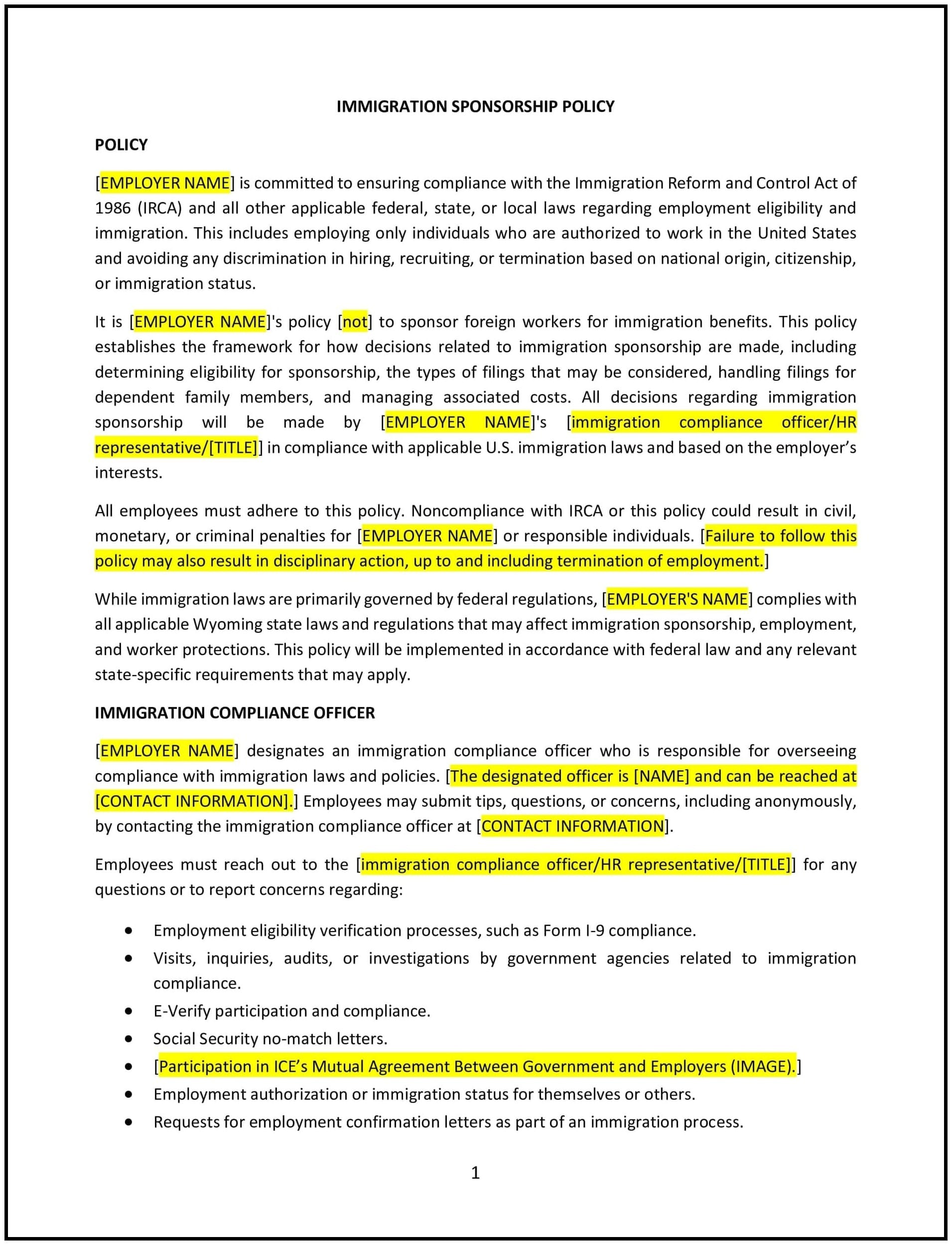Immigration sponsorship policy (Wyoming): Free template
Got contracts to review? While you're here for policies, let Cobrief make contract review effortless—start your free review now.

Customize this template for free
Immigration sponsorship policy (Wyoming)
In Wyoming, an immigration sponsorship policy provides guidelines for supporting employees who require work visas or permanent residency to work legally in the United States. This policy helps businesses navigate the complexities of immigration processes while attracting and retaining skilled talent.
This policy outlines the organization’s approach to sponsoring work visas, eligibility criteria, and responsibilities for both the employer and the employee, ensuring transparency and promoting compliance with U.S. immigration laws.
How to use this immigration sponsorship policy (Wyoming)
- Define sponsorship eligibility: Clearly specify which roles or positions may qualify for immigration sponsorship based on skills, experience, and business needs.
- Outline sponsorship types: Identify the types of visas the organization will sponsor, such as H-1B, L-1, or PERM-based green cards, and include relevant timelines for each process.
- Establish responsibilities: Detail the obligations of both the employer and the employee, such as covering legal fees, filing paperwork, or providing necessary documentation.
- Clarify cost-sharing arrangements: Specify which costs the company will cover (e.g., attorney fees or government filing fees) and any costs that may be the employee’s responsibility.
- Support compliance: Align the policy with federal immigration laws and ensure that all processes adhere to Wyoming’s employment regulations.
Benefits of using an immigration sponsorship policy (Wyoming)
A well-crafted immigration sponsorship policy provides several benefits for Wyoming businesses:
- Attracts skilled talent: Helps businesses compete for top international candidates by offering sponsorship opportunities.
- Supports compliance: Promotes adherence to federal immigration laws and minimizes the risk of legal issues.
- Enhances clarity: Provides clear guidelines for employees and employers, reducing misunderstandings during the sponsorship process.
- Improves retention: Demonstrates a commitment to supporting employees, fostering loyalty and long-term engagement.
- Adapts to workforce needs: Addresses Wyoming’s unique labor market challenges, particularly in industries with talent shortages.
Tips for using an immigration sponsorship policy (Wyoming)
- Communicate effectively: Share the policy with employees and candidates during recruitment and onboarding to set clear expectations.
- Work with legal experts: Collaborate with immigration attorneys to ensure accuracy and compliance throughout the process.
- Monitor compliance: Regularly review sponsorship practices to ensure adherence to changing immigration laws and regulations.
- Provide support: Offer resources or guidance to employees navigating the sponsorship process, such as connecting them with legal counsel.
- Update periodically: Revise the policy as needed to reflect changes in laws, workforce needs, or company priorities.